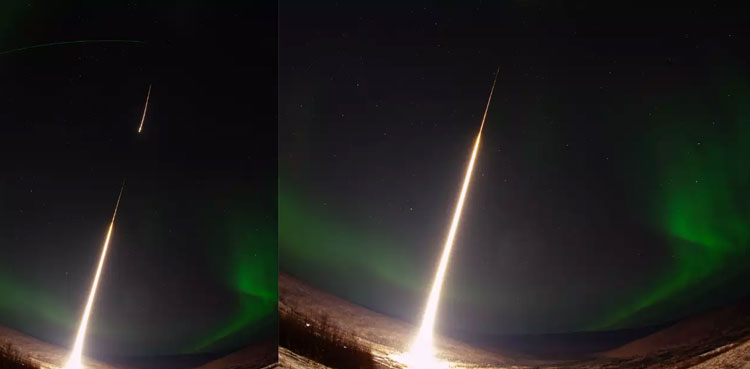
The National Aeronautics and Space Administration (NASA) has launched a sounding rocket into heart of aurora borealis from Poker Flat Research Range in Alaska during a display of the northern lights this week.
It was part of a mission called Dissipation, which has been created by NASA’s Goddard Space Flight Center in Greenbelt, Maryland, to discover how auroras heat the atmosphere and cause winds at high-altitude.
The rocket, propelled into the auroral display on Wednesday gathered crucial information that will contribute to a deeper understanding of the complex interplay between auroras and Earth’s atmosphere.
Scientists at NASA anticipate that this data will shed light on the mechanisms through which auroras impact atmospheric conditions, ultimately aiding in more accurate weather predictions and atmospheric modeling.

Aurora borealis
The northern lights —also known as the aurora borealis— typically appear about 60-620 miles above the Earth’s surface.
However, NASA’s mission was targeted at aurora in the thermosphere, which is about 62 to 186 miles above the surface.
Aurora are caused by charged particles from the sun, flowing in what’s called the solar wind, striking Earth’s magnetic field and being accelerated down its magnetic field lines.
The Dissipation mission has a second rocket ready and waiting for the next strong display of aurora.
“The teams continue to support a second sounding rocket launch for BEAM-PIE, a mission for Los Alamos National Laboratory that will use an electron beam to create radio waves, measuring how atmospheric conditions modulate them,” NASA in a statement said.
The data is key to interpreting measurements from many other missions.
from Science and Technology News - Latest science and technology news https://ift.tt/TdxDPXQ
via IFTTT
